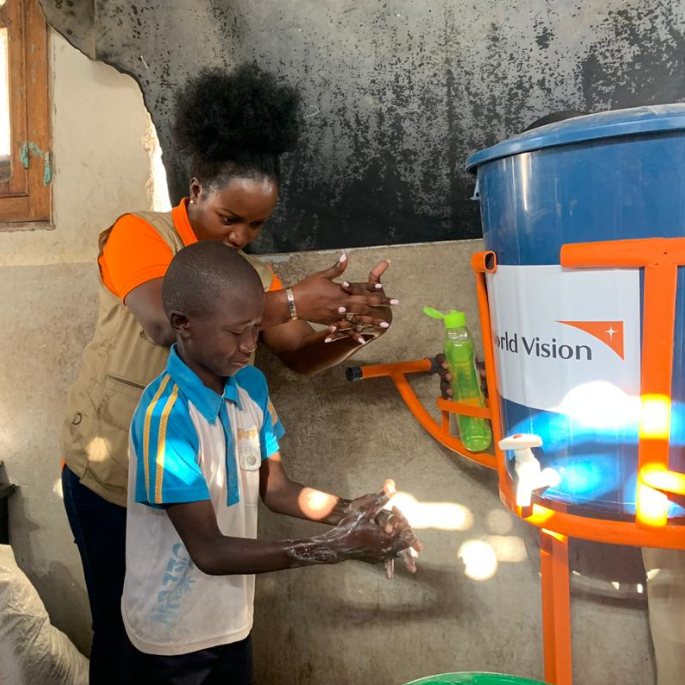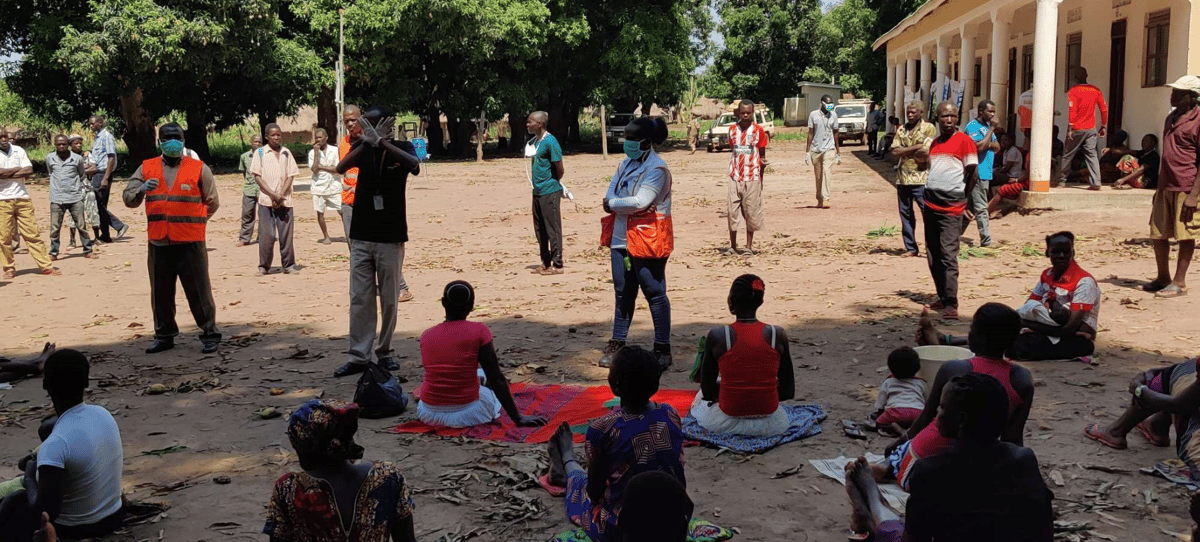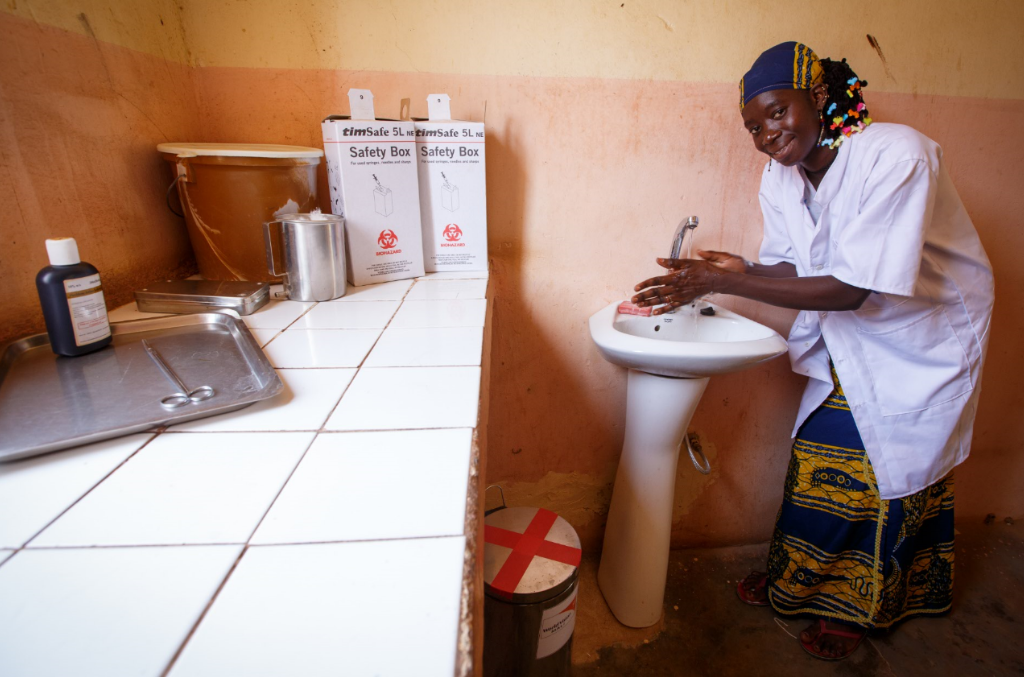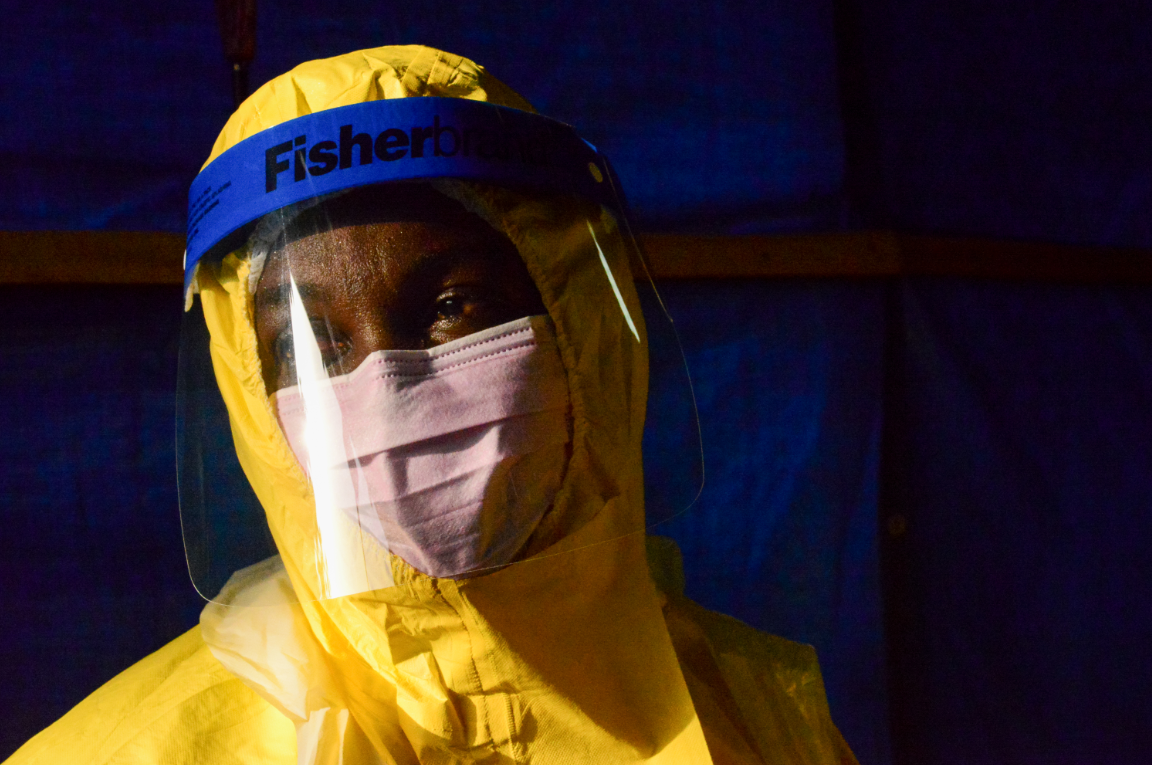Response to COVID-19
World Vision continues to respond to COVID-19 both here in the U.S. and globally, now in 70 countries. In the U.S., we continue to provide personal protective equipment (PPE) to first-responders, and we’re well on our way to providing 650,000 people with family emergency kits containing nutritious food, school supplies, and hygiene items.
Our focus, as always, is on the most vulnerable and we’re concerned about the impact of COVID-19 in the developing world. We know the virus is a greater threat to people with existing health conditions. In developing countries, there are a greater number of people living with HIV and AIDS, malnutrition, and malaria. We also know that the virus attacks people's lungs, and there are high rates of pulmonary diseases in the developing world, including tuberculosis and pneumonia.
The healthcare systems in many of the countries World Vision works are inadequate and unprepared to respond to the COVID-19 pandemic. For example, there are only 50 ICU beds in Kenya, 42 ICU beds in Uganda, and Liberia has none.
We know from our work with the University of North Carolina's Water Institute that only half of the healthcare facilities where World Vision works have clean water on the premises. Even more concerning—only 16% have even basic hand-washing facilities with soap and water. Imagine if, in this time of COVID-19, your doctor or nurse didn’t have a way to wash their hands between seeing patients.
We also know that like the global water crisis, this pandemic will disproportionately impact women. For example, seven out of 10 front-line healthcare workers are women, so they’re at greater risk of becoming infected.
That’s the bad news. But, there’s plenty of reason to be optimistic as well.
The Good News
African governments have done a good job in preventing the spread of the virus by taking quick action to close down borders and issue stay-at-home orders. The number of reported COVID-19 cases in many African countries remain in the hundreds. We are able to continue our work to provide clean water in many countries including Zambia, South Sudan, Kenya, Burundi, Uganda, Swaziland, DR Congo, Tanzania, Sierra Leone, Chad, Mali, Malawi, and Mozambique. In some countries, we have modified our work significantly working regionally in Ethiopia, Niger, Mozambique, and Ghana. In others, our work to provide clean water is on pause because of government restrictions, including Honduras, India, Somalia, Angola, Senegal, and Lesotho. In Rwanda, the government has funded us to provide permanent hand-washing stations in 48 hospitals and we’re helping 93,000 people in refugee camps through a grant from the UN High Commission on Refugees (UNHCR).
One of the most effective ways to prevent the spread of this virus is to ensure that people have a way to wash their hands—and that they understand why handwashing is so critical. World Vision is uniquely equipped to respond to this need because we are a global leader in both hand-washing education and clean water provision. In fact, we reach one new person with hand-washing education every 10 seconds and one new person with clean water every 10 seconds as well.

During the pandemic, we are modifying our hand-washing education efforts through the practice of physical distancing and the use of radio, bullhorns, and posters. To scale-up handwashing access, we’ve already provided nearly 15,000 public hand-washing stations and have been able to donate literally tons of soap.

We’re also working through deep and trusted relationships to help prevent the spread of the virus. Our network of 220,000 community health workers worldwide are already on the front lines with their communities. We’re also working with local faith leaders, who are highly trusted by their communities – training thousands of them to quickly reach kids and families with tools to prevent the spread of COVID-19. Our work with faith leaders and community health workers during the Ebola crisis was extremely effective in preventing deaths. This significant achievement has been recognized by the public health community and published in the top medical journal The Lancet.
Last year, the World Health Organization (WHO) and UNICEF put out a call to action for organizations to commit to providing water, sanitation, and hygiene in healthcare facilities. They knew that this was critical to preventing the spread of infectious disease. Even before COVID-19, we knew that improving hygiene in healthcare facilities could save the lives of one million people a year. World Vision and our partners responded with a commitment to equip 800 rural healthcare facilities and we’re now half-way to that goal. This along with providing personal protective equipment (PPE) for healthcare workers is one of the most critical solutions to preventing the spread of this deadly virus and will have a lasting impact in saving lives. Learn more here.
 |
Why Focus on PPE for Healthcare Workers
One of our main strategies in combating COVID-19 is to protect front-line healthcare workers by providing hand-washing stations, clean water, training, disinfectant, and PPE. In fact, we have already protected more than half a million healthcare workers as part of our global response. Why is this so important? Let’s look at some facts.
Of course, healthcare workers are at greater risk because they’re exposed to COVID-19 when they’re caring for patients who are infected by the virus. We can learn from previous epidemics of deadly viruses. During the Ebola crisis in West Africa, the death rate was 73-114 x higher among doctors, nurses, and midwives than among the general population. This is an astoundingly higher rate of death among front-line healthcare workers. Researchers at the World Bank then determined the impact of these deaths on the survival rate of women during childbirth. They found that an additional 4,022 women would die per year in childbirth as a result of doctors, nurses, and midwives lost to Ebola (Source).

Researchers at John Hopkins recently estimated that in areas where PPE remain scarce, 70-100% of healthcare workers will be infected by COVID-19. Then they measured the return on investment of providing PPE to front-line workers and came up with a 6,918% return. So, whether you look at this from an economic, public health, or moral perspective, it makes sense to put a priority on protecting front-line healthcare workers – and we are (Source).
|